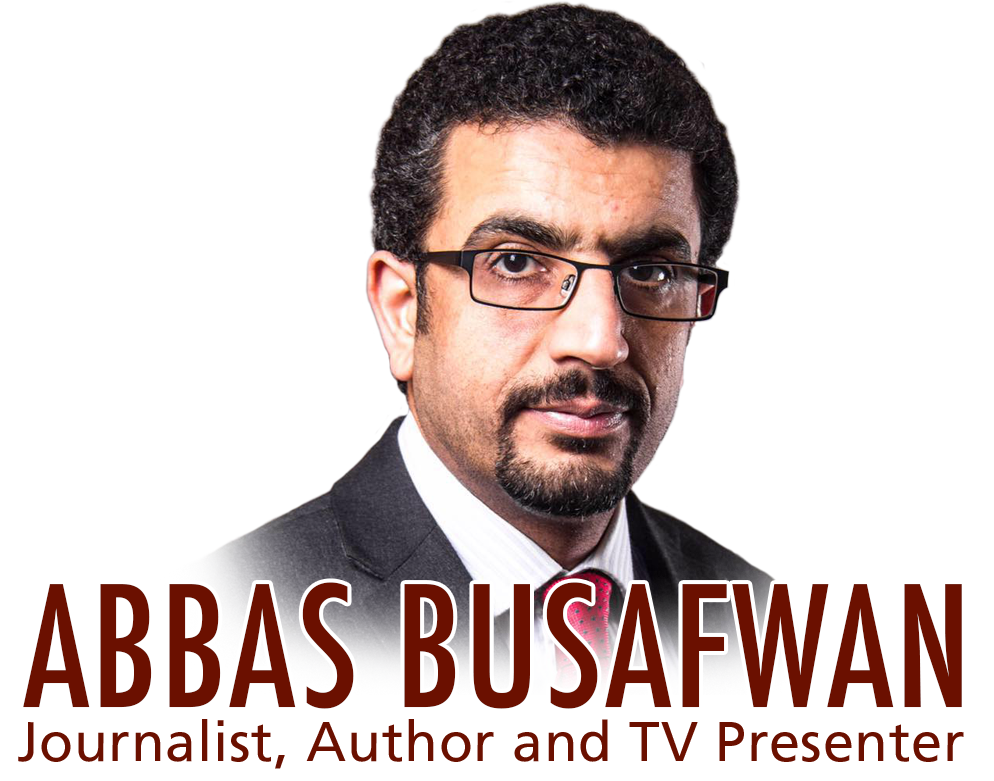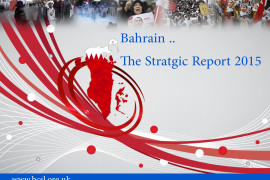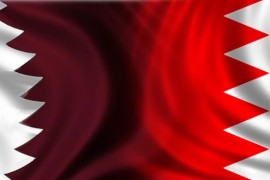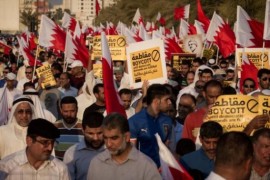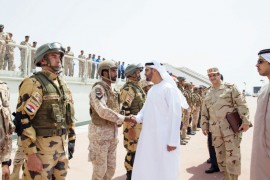- 1-Introduction
- 2-The forced absence versus nonexistence of the Muslim Brotherhood
- 3-The absence of Salafist leaders
1-Introduction
In the 2014 Council of Representatives, the absence is not limited to leaders of Al Wefaq Islamist Society, the major opposition society, and Waad (the National Democratic Action Society = Al Wefaq’s prominent partner), but extends to Salafist and Muslim Brotherhood leaders as well, which are absent from the electoral and parliamentary scene because they have become completely exploited from the point of view of the authorities.
Political parties are also absent from the forthcoming parliament, namely parties that are supposed to take over the parliamentary work, according to what is prevalent in democratic countries (unsurprisingly Bahrain is not among them). Independent members are expected to dominate the Shura Council (40 appointed members) and the Council of Representatives (40 elected members), but the authorities control the election process through political capital, constituencies, and laws.
This poses a recurring question regarding the ruling family’s use of loyal groups for the implementation of its objectives. It also raises the question of how authorities perceive opposition parties, which in my mind is not different in essence from their perception of the loyalists. Everyone (loyalists and the opposition) are performing roles in granting of the royal family the missing legitimacy. Although both loyalists and the opposition are aware of this fact, the latter chooses to boycott the elections, while loyal groups prefer an alliance with the existing regime rather than search for a compromise settlement fearing that marginalized Shiites will be given roles in the political system political rather than Sunni loyalists. This proves the failure of popular sectors to unite against the ruling unilateral rule of Al-Khalifa.
2-The forced absence versus nonexistence of the Muslim Brotherhood
Three main Muslim Brotherhood dignitaries did not participate in the elections and the Council of Representatives in 2014 and they are: Ali Ahmed, President of Al Minbar National Islamic Society (Muslim Brotherhood’s political arm in Bahrain; the religious arm: Al Eslah Society), and head of the society’s parliamentary in the previous parliament. The former president of this society Dr. Abdul Latif Al-Sheikh did not participate either. He had previously lost in the 2010 elections.
The third Muslim Brotherhood figure absent from the Council of Representatives is Dr. Salah Ali, who was the president of the society at the beginning of its establishment. He had lost any hopes of obtaining a better post in the government especially after he miserably managed the Ministry of Human Rights since 2012, in an unsuccessful attempt by the regime to desperately improve the image of human rights in the stricken island.
Ali is considered one of the arms of the radical Minister of the Royal Court, Khaled bin Ahmed. Ali was a member of the Council of Representatives for two successive seasons (2002-2010), and was appointed a member of the Shura Council in 2010, due to the impossibility of his re-election in light of a deterioration in his popularity, and the growth of his financial abilities without clear justification, in a country which does not raise the slogan: “From where did you get this money?”.
In April 2012, Dr. Salah Ali was appointed by the King of Bahrain as a Minister for Human Rights, in a discretionary step to thank the Muslim Brotherhood for their absolute support of the regime against reform and democratic demands. This appointment was also considered a personal appreciation for Ali for the “great services” he provided to the ruling family.
Some people speculate that Ali is likely to lose his job in the anticipated government appointments in December (2014). The speculations regarding these appointments which resemble stock exchange fluctuations are expected to grow intensely after the parliamentary elections, which are characterized by weak participation, for reasons related to the absence of competitors, and others belonging to the loyalists’ loss of confidence in the ability of the parliament with its two sectors (Council of Representatives and the Shura Council) to make a difference in people’s lives and their future. On the other hand, the opposition views the parliament as useless especially with its limited parliamentary powers, demands an alternative “real” parliament, and refuses to participate in the “blood elections,” in reference to violence practiced by the regime against its opposition.
In my opinion, the absence of the three Muslim Brotherhood figures in addition to others is not due to painful blows received by the Muslim Brotherhood Movement in the region, especially that the Bahrain Brotherhood Movement is a traditional loyalist to the regime. The Brotherhood backed the security solution adopted by Al-Khalifa authorities in all the previous stages, including support to the Saudi military intervention in Manama, attacking the Pearl Roundabout and killing of peaceful demonstrators (February March 2011), and the subsequent disgraceful repression.
Another important fact is that public confidence in the Islamic Minbar had trembled before the outbreak of the so-called “Arab Spring”. The Brotherhood society earned 4.2 percent of the votes in the 2010 elections, recorded in favor of the former members of parliament Ali Ahmed and Mohammed Al-Ammadi. The Brotherhood candidates that lost in these same elections were: Abdul Latif Al-Sheikh (the former president of the society), Tariq Al-Sheikh, Adnan Boumtia, Abdul Rahman Al-Hassan, Abdel Basset Al-Shaer, and Ibrahim Al-Hadi.
Clearly, the regime which controls the elections prefers independent figures when it comes to a choice between loyalists independent Sunnis or loyalist Islamist Sunnis. Supporting this proposition is the intervention of the regime in favor of the Muslim Brotherhood in the elections of 2006 and 2010, through the forced involvement of military personnel and naturalized citizens to vote in support of the Brotherhood member Dr. Salah Ali against the prominent liberal opposition member Dr. Munira Fakhra, and in support of the Brotherhood member Ahmed Ali against the opposition leader Ibrahim Sharif, detained since 2011. This extrapolates obvious evidence of the lack of required integrity and transparency in successive elections.
3-The absence of Salafist leaders
We can point to four main Salafi figures, considered leaders in Al Asalah Islamic Society, the political facade of Bahrain Salafist movement, while the Muslim Educational Society is their religious facade, who will be absent from the Council of Representatives in 2014. The first is Sheikh Adel Al-Maawdeh, who is seen as one of the prominent faces of the Salafist movement, and was a member of the Council of Representatives for successive rounds from 2002-2014. He withdrew from the upcoming elections before ten days from the day of the scheduled vote in 22 November 2014.
Al-Maawdeh did not provide an explanation for his withdrawal, but some interpreted it as an expression of the unwillingness of the government in backing up Salafist MPs involved in supporting the armed groups in Syria. However, I do not accept this interpretation because Halim Murad, a Salafi financier of terrorism in Syria, is still a candidate, and it is very likely that he would be a part of the Council of Representatives. Furthermore, I think Al-Maawdeh’s withdrawal is due to the large competition in his constituency (the first in Muharraq), what makes his victory doubtful. The regime therefore finds it best not to consume what remains of his popularity.
The Royal Court (which controls everything in the country) grossly intervened so that Al-Maawdeh wins in the 2010 elections by acclamation. He was received by the King of Bahrain a few days prior to the elections, and this piece of news was published on the front page of Al-Watan nawspaper which is known for its with hostile language against the opposition and the Shiites. In half a page, the newspaper detailed the reception as if an exception has occurred, while his rivals were pressured to withdraw from the electoral race (2010).
Authorities find it inappropriate to replicate the same steps leading to Al-Maawdeh victory. However, he is expecting a new appointment, perhaps a as member of the Shura Council, despite the fact that he sees himself deserving a ministerial position, more than any other person, for his “great services” to the regime.
The second Salafist figure which will not be present the parliament in 2014 is the former president of Al Asalah Islamic Society, Ghanim Albuainain, who was a member of the parliamentary chamber from 2002 to 2012, and was appointed in April 2012 as Minister of State for Foreign Affairs, a definite indication to the strong ties between Salafists and the government.
The third Salafist who will be absent, this round and probably forever, from the upcoming parliamentary councils rather than the Council of Representatives alone in 2014, is Hamad Al Mohannadi. He had won in the 2002 and 2006 elections, and was destined to win in 2010 if it was not for the intervention of the authorities for the benefit of independent member Abdullah bin Huwail. This was essentially the cause of the immigration of Mohannadi and the members of his family to the State of Qatar. It is worthy to note a common mistake in some media, when they mention naturalization by Doha for some citizens of Bahrain, while the truth is that Sunnis loyal to the regime voluntarily chose to leave Bahrain to escape from the unstable situation in search for a better life.
The third Salafist who will be absent from the anticipated Council of Representatives is Ibrahim Busandal, who called to boycott the upcoming elections because the influence of Islamists in parliament is limited. At the same time, Busandal remained tough on the opposition, rejecting their demands for justice, equality, and a real Parliament.
In addition to the absence of both Salafists and the Muslim Brotherhood, the leader of the National Unity Assembly (Al Fateh), Dr. Abdullatif Al-Mahmoud, will not take part in the elections because his figure is “superior to a membership in the Council of Representatives,” as promoted by some of his supporters. This of course is in an attempt to demonstrate himself a leader parallel to Sheikh Ali Salman, the Secretary General of Al Wefaq, who did not run for parliament in 2010.
The absence of the opposition and some pro-regime icons deprives the 2014 Council of Representatives of any value except the satisfaction of the regime. The absence of the already fragile political parties from the parliament and the domination of independent members in both councils (Council of Representatives and the Shura Council) will enable the government to control the legislative institution with the blink of an eye
